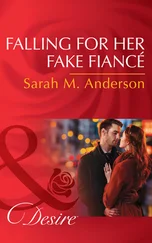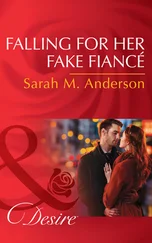“So when you finally decided that the deaths of Maurice and Isabella had nothing to do with the insider-dealing problem, that was a modification of your theory that they had both been poisoned by the person responsible for the insider dealing?”
“Exactly.”
“Which in turn was a modification of the theory that they had both died natural deaths?”
“Quite so.” I paid no heed to her slightly satirical tone: to a woman who has spent the year dealing with builders much may be forgiven. “I fully concede that in the course of my investigation I have frequently been in error. My cardinal mistake was my failure to attach the proper significance to the affair of Mrs. Tyrrell’s ring.”
“I will admit,” said Selena, “that I don’t see what relevance Mrs. Tyrrell’s ring has to anything at all.”
“Unless you mean,” said Julia, who had settled in prudent proximity to the champagne, “that you believe Daphne really did have some kind of prophetic powers?”
“On the contrary, the one thing of which I have throughout been entirely certain is that she did not. I should therefore have reflected far more carefully than I did on the alternative explanation. It was, after all, a perfectly simple one: Daphne had seen the ring lying on the washbasin or some such place and recognised it as Mrs. Tyrrell’s. But instead of simply saying, as most people would have done, ‘I think Mrs. Tyrrell has left her ring in the bathroom,’ she had seen an opportunity to demonstrate her psychic powers.”
“And I suppose,” said Selena, “that there is some equally simple explanation for her remark about Ricky Farnham being paid for some medicine he’d sold?”
“She could have known in any number of ways that he had shares in a particular pharmaceutical company — he’d probably mentioned it himself sometime in the bar of the Newt and Ninepence. To find out when it was due to pay a dividend she had only to look at the financial page of the newspaper.”
“You make it sound,” said Julia, “as if she were quite clever. That wasn’t my impression of her.”
“You underestimated her, my dear Julia, because she was not interested in the same things that you are interested in. In some ways she was really quite clever, as indeed Isabella must have been. Moreover, children generally acquire the skills of those they grow up with, even without any conscious effort to learn or teach. Daphne had acquired the skills of a professional fortune-teller. These include, I need hardly say, the art of collecting small scraps of information, perhaps in themselves entirely trivial, and presenting them as extraordinary and mysterious. If I had given proper consideration to the affair of the ring, I should soon have seen that certain other events, apparently mysterious, also bore the hallmarks of Daphne’s authorship. Instead, having allowed my attention to become concentrated on the insider-dealing question, I mistakenly attributed them to the man in the black Mercedes.”
“You are referring,” said Selena, “to Daphne’s burglary and the stone-throwing incident? I take it that she simply invented them?”
“Undoubtedly. The story of the burglar was invented by Daphne to make herself an object of sympathy and interest, in particular to Maurice, but by telling it at midnight on the doorstep of the Vicarage, dishevelled and apparently terrified, she lent it a plausibility it might not otherwise have had. The stone-throwing incident was a repetition of the same effect, with a certain amount of embellishment — she threw the stone herself, of course, from inside rather than outside the Rectory garden, and then scraped her head with it until she drew blood.”
“Just to make herself interesting?” Julia turned pale and hastily lit a Gauloise.
“People have been known to go to greater lengths.”
“And you think that was also her reason for claiming to have the power of prophecy?”
“That, I would say, did rather more than make her interesting. If she could persuade people to believe it, it provided her with a means of influence, even of control, over people and events. Having even less power than most of us to have any effect on the world around her, she had a correspondingly more desperate desire to do so.”
“Hilary,” said Julia, drawing deeply on her Gauloise, “you seem to be saying that everything Daphne did was a conscious and deliberate deception. But you never met her — you don’t know how appallingly earnest she was about everything. I’d have sworn that she really believed every word she said — that she had the power of prophecy and all the nonsense about the Book and so on.”
“My dear Julia,” I said, “I have no doubt that she believed in them absolutely. In order to deceive others, it is necessary also to deceive oneself. The actor playing Hamlet must believe that he is indeed the Prince of Denmark, though when he leaves the stage he will usually remember who he really is. On the other hand, when someone’s entire life is based on pretence, they will seldom if ever return to reality. That is the secret of successful politicians, evangelists and confidence tricksters — they believe they are telling the truth, even when they know that they have faked the evidence. Sincerity, my dear Julia, is a quality not to be trusted.”
“What I find curious,” said Selena, “is her prediction about animals. Why did she risk her credibility by making it? After all, it was pure chance that it actually came true.”
“Well, perhaps. You will remember, however, that it came true, so far as Griselda was concerned, as the result of an accident of which Daphne was the indirect cause. The primary purpose of the stone-throwing incident was no doubt to inspire the interest and concern of the Reverend Maurice. But was it, I wonder, entirely by chance that it occurred at a time when Griselda was sitting out of doors and the notoriously nervous Tabitha was asleep on the roof of the potting shed and the traffic in the High Street was at its busiest?”
“You surely don’t think she did it on purpose?”
“My dear Julia, who can fathom the workings of the subconscious mind? She would not, I imagine, have admitted to herself that she was hoping to cause an accident. The fact remains that she achieved what she wanted — her prophetic powers were vindicated and Griselda was prevented from looking after Maurice’s garden. Which was the motive for the prophecy in the first place — she was hoping, quite absurdly of course, to frighten Griselda into giving up working at the Vicarage. Reference was made, you remember, to the bad-tempered Alsatian in the garden next door.”
“But Hilary, why on earth should she want to do that?”
“Because no one was to do anything for Maurice except Daphne herself. She not only wanted to play a part in his life, she wanted to be the only person who played any part in it. She was determined that he should need her — and that he should need no one else. She succeeded, as I have said, in replacing Griselda as his gardener. She hinted to Mrs. Tyrrell that he could no longer afford to pay for cleaning, so Mrs. Tyrrell tactfully stopped cleaning for him and was also replaced by Daphne. By her constant presence and her exaggerated devotion she began to separate him from his friends. And when Terry came on the scene, she naturally took steps to get rid of him — hence the theft of the frontispiece.”
“Even so,” said Selena, “one could hardly have foreseen that she’d be the death of him.”
“Not quite that, perhaps. But one might have foreseen, I think, that if he was ill she would tamper with his medicine — she could not have borne the idea that she played no significant part in his treatment. There was one thing at least, you see, about which she had been entirely truthful: she wanted what she always said she wanted — to feel that she was caring for someone who really needed her.”
Читать дальше












